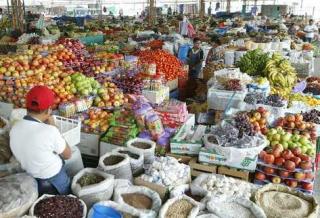This is the first case study from SUEUAA (Strengthening Urban Engagement in Universities in Asia and Africa), written by Professor Charles Nherera of the University of Zimbabwe and Dr Jo Neary, University of Glasgow. The project is interested in how Universities in the Global South can contribute to solving geographical, economic and social issues in their cities. The project is looking at six cities in six different countries: Harare (Zimbabwe), Dar-es-Salaam (Tanzania), Johannesburg (South Africa), Manilla (Philippines), Duhok (Iraq), and Sanandaj (Iran).
The SUEUAA project involves academics from each of these cities, who will be carrying out fieldwork, and elite interviews with decision makers in the city and senior academics from local Universities, to better understand the ability of Universities to respond to city issues.
In this first case study, we look at how the University of Zimbabwe in Harare could respond to the need to enhance the capacity of the informal sector in addressing environmental and socio-economic issues in the City.
Zimbabwe is facing continually rising unemployment due to a persistent harsh economic environment. Issues of policy inconsistency, lack of funding, sanctions, corruption, ineffective bureaucracy, inadequate infrastructure, and dependence on external currencies, appear to work against growth in the economy (International Labour Organisation, 2016). The country also risks stagnation of industrialisation, due to outdated industrial machinery, erratic power supply, and company closures, and the unplanned informalisation of the economy. As individuals fail to secure employment in the formal sector, they have moved to the informal labour market, in industries including mining, agriculture, and street vending. This is characterised by low wages, poor working conditions, little to no job security and little to no contribution to the fiscas in terms of statutory taxes. In addition, the growth of the informal labour market means it is often difficult to measure true unemployment in Zimbabwe (BBC, 2017) as this tends to exclude informal sector viable economic engagements/employment. While an estimated 90% of the working age population is seen to be engaged in the informal economy, they only contribute approximately 5% to national GDP.
The University of Zimbabwe is currently involved in several community engagement projects. This project intends to introduce one such project which focuses on improving the capacity of the informal sector to facilitate more meaningful contributions to the national economy. The University will collaborate with other key stakeholders, including Government Ministers, NGOs (Non-Governmental Organisations), and other developmental partners.
The University is currently seeking funding in order to contribute to a training scheme targeted at groups of informal sector operators at selected sites in Harare. The participants will be trained in a number of ways, including tutorials, demonstrations, and coaching. They will be taught soft skills (dealing with basic social skills), academic skills (ensuring competences in science, technology, engineering), and mathematics, (STEM) as well as professional skills focusing on elements of their business, including finance, costing, management, and marketing. The training will be carried out through mobile teaching units, but also using University buildings and laboratories, formal sector workshop and laboratory space, and premises of informal sector peers. It is anticipated that participation in this scheme will encourage the “professionalization” of the informal sector, and an increase in the informal labour market contribution to the fiscas.
This mode of community engagement also encourages informal sector traders to participate in training schemes around different pieces of equipment that they could use to develop a street trading business (for example, a fruit juicer to sell fresh fruit juice on the streets). For a fee, the participant would learn how to use the machinery and associated skills, and would be assisted in securing funding to procure the machinery to set up their own business.
References:
International Labour Organisation (2016) ILO commissioned study analyses Zimbabwe’s labour market sector http://www.ilo.org/addisababa/media-centre/news/WCMS_488800/lang--en/index.htm [accessed 06/02/2018]
BBC (2017) Reality check: are 90% of Zimbabweans unemployed? http://www.bbc.co.uk/news/business-42116932 [accessed 06/02/2018]
Zimbabwe National Statistics Agents (ZIMSTAT) (2016) Fact Sheet. Government of Zimbabwe.

